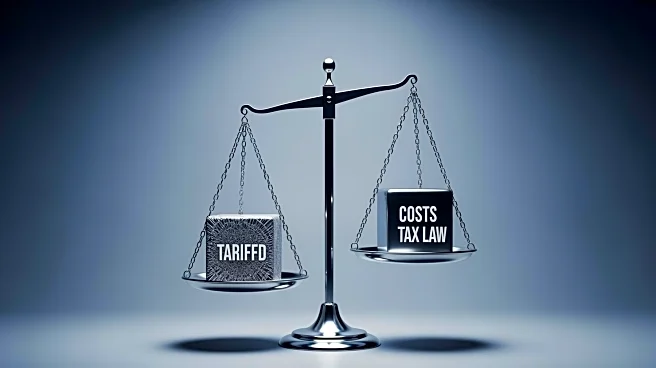What's Happening?
Tricolor, a company currently undergoing bankruptcy proceedings, is facing serious allegations of 'pervasive fraud.' According to a report by Bloomberg, a preliminary examination of Tricolor's financial records revealed that at least 29,000 loans pledged to creditors were linked to vehicles that were already securing other debts. This discovery has raised significant concerns about the company's financial practices and the integrity of its loan agreements. The allegations suggest a pattern of financial mismanagement that could have broader implications for the company's creditors and stakeholders.
Why It's Important?
The allegations of fraud against Tricolor are significant as they highlight potential systemic issues within the company's financial operations. If proven true, these allegations could lead to severe financial repercussions for Tricolor, including loss of trust from creditors and potential legal actions. The situation underscores the importance of transparency and accountability in financial dealings, particularly in the automotive industry where large sums of money are often involved. The outcome of these proceedings could set a precedent for how similar cases are handled in the future, impacting industry standards and regulatory practices.
What's Next?
As the bankruptcy proceedings continue, Tricolor will likely face increased scrutiny from both legal authorities and its creditors. The company may need to provide further documentation and evidence to address the allegations and clarify its financial practices. Stakeholders, including creditors and investors, will be closely monitoring the situation to assess the potential impact on their interests. Depending on the findings, there could be calls for regulatory reforms to prevent similar issues in the future.
Beyond the Headlines
The Tricolor case may prompt a broader examination of financial practices within the automotive industry, particularly concerning loan agreements and debt management. It raises questions about the adequacy of current regulatory frameworks in detecting and preventing fraudulent activities. The case could also influence public perception of the industry, potentially leading to increased demand for transparency and ethical business practices.








